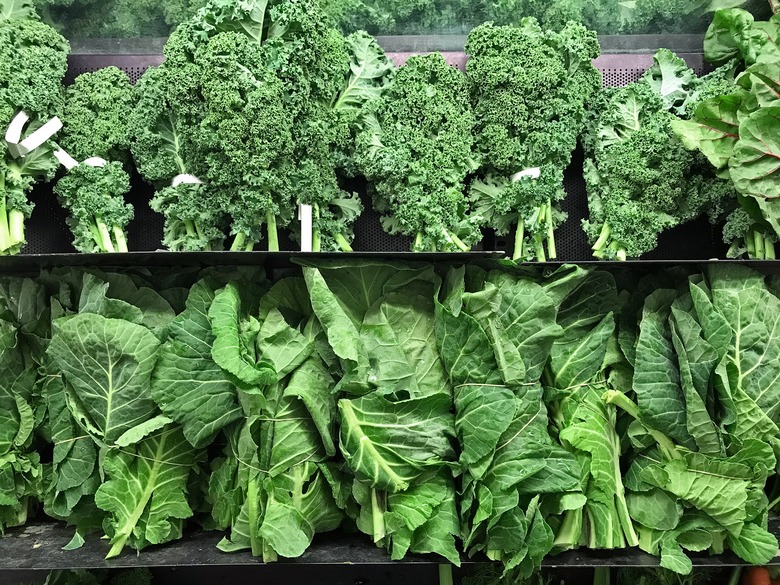Avoid These Foods During The Government Shutdown, Experts Warn
December 22 marked the beginning of a partial government shutdown sparked by a dispute between the president and congressional Democrats over funding for a border wall. As a result, an estimated 800,000 federal workers have gone unpaid. One of the nine affected departments is the U.S. Food and Drug Administration, responsible for making sure the food we eat is safe.
The World's Biggest Food Poisoning Scares
Due to the lack of funding, the FDA now lacks the ability to adequately publicize recalls, outbreaks and other information vital to human health. 2018 was full of major recalls ranging from romaine and eggs to yogurt and cake mix — all of which were announced by the FDA — and nobody knows when the shutdown will end, so how do we know what's safe to eat?
To find out, we spoke with registered dietician, attorney, and CEO of TelaDietitian Jackie Arnett Elnahar, who specializes in weight loss and disease prevention, management and reversal. Until the FDA is able to monitor recalls and products more effectively, Elnahar says it's important to steer clear of raw foods and processed meats because they're prone to contamination. She also says to avoid romaine lettuce and sprouts such as alfalfa and broccoli. These vegetables are susceptible to E. coli.
"Ground beef should be avoided since it uses the meat of many different animals. Opt for bigger-piece meats that are less likely to be contaminated, such as steak," Elnahar told The Daily Meal in an email. "It is also very important to eat less raw vegetables at this time and to cook more. Cooking foods thoroughly at 165 degrees Fahrenheit can kill E. coli, salmonella and listeria."
Before the shutdown began, the FDA was posting multiple food recalls and other various safety bulletins per day. Some people in the department are still working (albeit without pay) on high-risk items only. Even so, one expert worries inspectors' minds might not be in the right place.
"All these people are professionals and are certainly doing their jobs, but if they're also worried about who's going to pay for their kid's dental appointments or soccer stuff, or even food or rent, their focus is not where you want it to be," renowned foodborne illness lawyer Bill Marler told The Daily Meal over the phone. "The FDA is underfunded and understaffed, with respect, to inspect before furloughing people. They don't get to as many high-risk factories and processing groups as they should anyway, so to cut back even more certainly raises enormous concerns."
Marler, who's been litigating food poisoning cases since 1993, echoes Elnahar's assertion on which foods to avoid, and offers a few other recommendations.
"[Avoid] any foods a consumer can't cook," he said. "Or any ready-to-eat products that likely contain pathogens, like cheeses, deli meats, leafy greens or sprouts. Anything that doesn't have a 'kill step' involved, avoid it until the shutdown is over."
The Daily Meal has reached out to the FDA for comment.
On Friday afternoon the head of the FDA addressed some of the concerns about the food supply in a tweet.
THREAD: FDA's ongoing work upholding food safety continues, even during this partial funding lapse. Our ability to monitor/respond to emerging food safety issues is maintained through efforts of a dedicated workforce that's fully committed to this mission https://t.co/AM1OGL9q9N
— Scott Gottlieb, M.D. (@SGottliebFDA) January 10, 2019
One additional suggestion that we have is to follow Food Safety News and your supermarket or grocery store on social media. This way, if the grocer proactively issues a recall not announced by the FDA — as Kroger did on January 10 — you'll have a better chance of knowing about it. Truth be told, watching what you eat is just one way to ensure the safety of yourself and your family at this time. Take it a step further with these tips for avoiding food poisoning.


